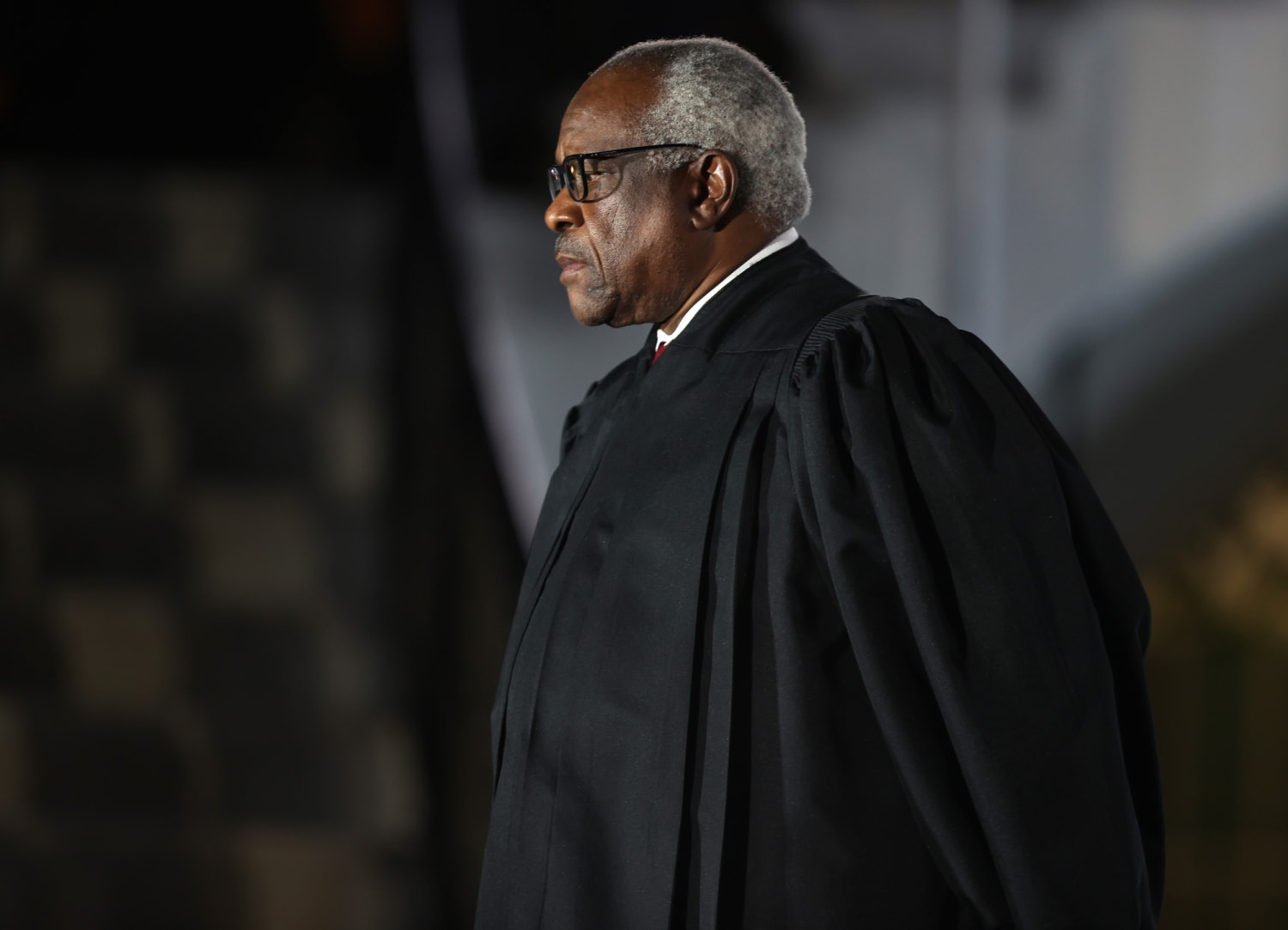[ad_1]

WASHINGTON — Supreme Court Justice Clarence Thomas on Friday explained his failure to disclose trips paid for by a friend, conservative billionaire Harlan Crow.
Thomas said in a statement that Crow and his wife, Kathy, are “dearest friends” and that he and his wife have joined them on family trips for years.
“Early in my tenure at the Court, I sought guidance from my colleagues and others in the judiciary, and was advised that this sort of personal hospitality from close personal friends, who did not have business before the Court, was not reportable,” Thomas said.
“I have endeavored to follow that counsel throughout my tenure, and have always sought to comply with the disclosure guidelines,” he added.
Thomas, once of the court’s six conservative justices, noted that he would comply with changes made to disclosure rules that were announced last month. Those revisions made it clear that trips on private jets and stays at privately owned resorts like one Crow owns in upstate New York would have to be disclosed.
The change to disclosure rules tightened an exemption for “personal hospitality” that was not strictly defined.
That tweak was made just weeks before a ProPublica article published Thursday detailed extravagant trips that Thomas took that were funded by Crow.
Thomas did not disclose these trips — reportedly including travel on Crow’s private jet and visits to the resort — on his annual financial disclosure statements. Under the rules that existed until recently, he may not have been required to.
The “personal hospitality” exemption means judges and justices don’t have to disclose certain gifts, including accommodations and food, when the person involved is a friend. The new interpretation made it clear that travel by private jet and stays at resort-type facilities owned by private entities have to be disclosed.
Thomas has been the focus of much scrutiny in recent months, largely driven by the actions of his wife, Virginia “Ginni” Thomas, including her support for former President Donald Trump’s efforts to overturn the 2020 election results. Thomas himself faced criticism for failing to step aside from cases involving Trump and the election.
The Supreme Court’s 6-3 conservative majority has angered liberals by dramatically shifting American law to the right, most notably with its ruling last year that overturned the 1973 Roe v. Wade decision that said women had a constitutional right to obtain abortions.
The latest developments have renewed calls for Supreme Court justices to adopt an ethics code of conduct similar to the one that binds lower court judges.
Among other things, that code requires judges to “avoid impropriety and the appearance of impropriety in all activities.” If judges breach the code, they can be investigated and reprimanded through a separate complaint process.
The justices say they follow the spirit of the code, introduced in 1973, but they have never formally adopted one of their own. There is also no procedure that allows for complaints to be investigated short of the drastic step of impeachment.
Members of Congress have introduced legislation requiring the justices to adopt a code, although there are questions as to whether it could be enforced.
[ad_2]
Source link

 Casino Welcome Bonus
Casino Welcome Bonus